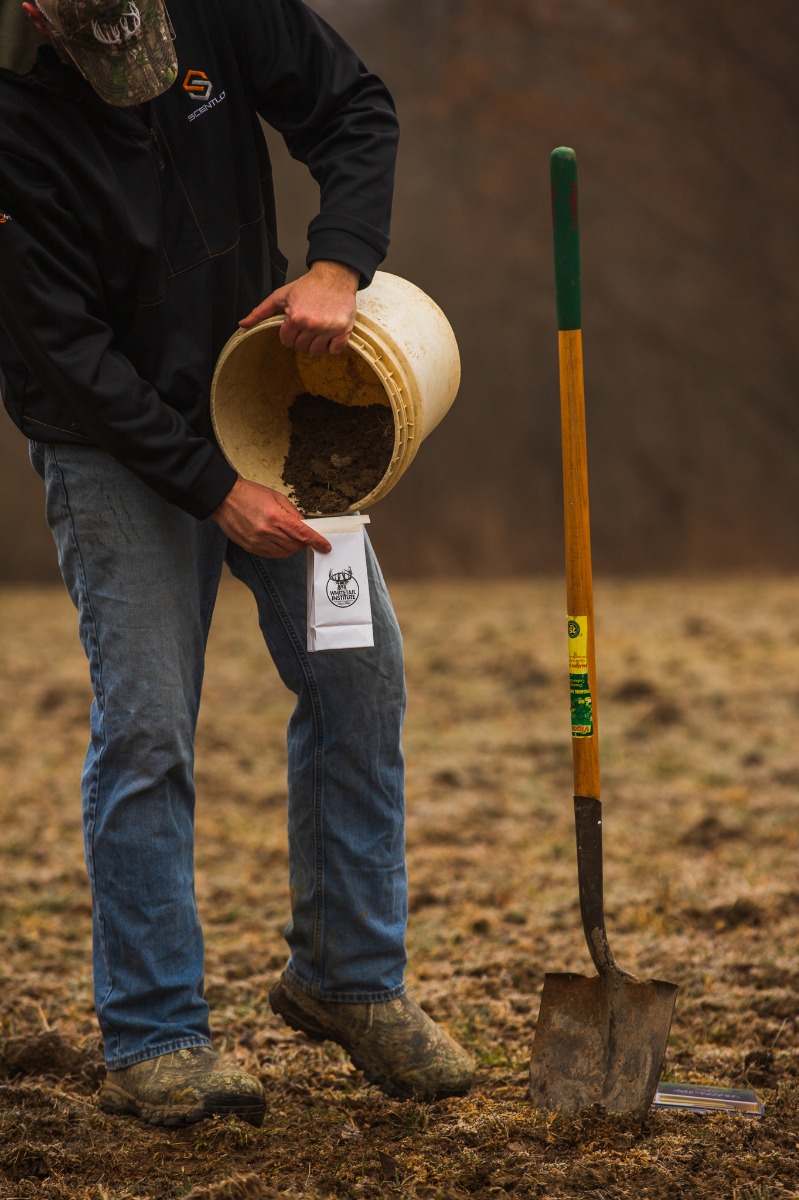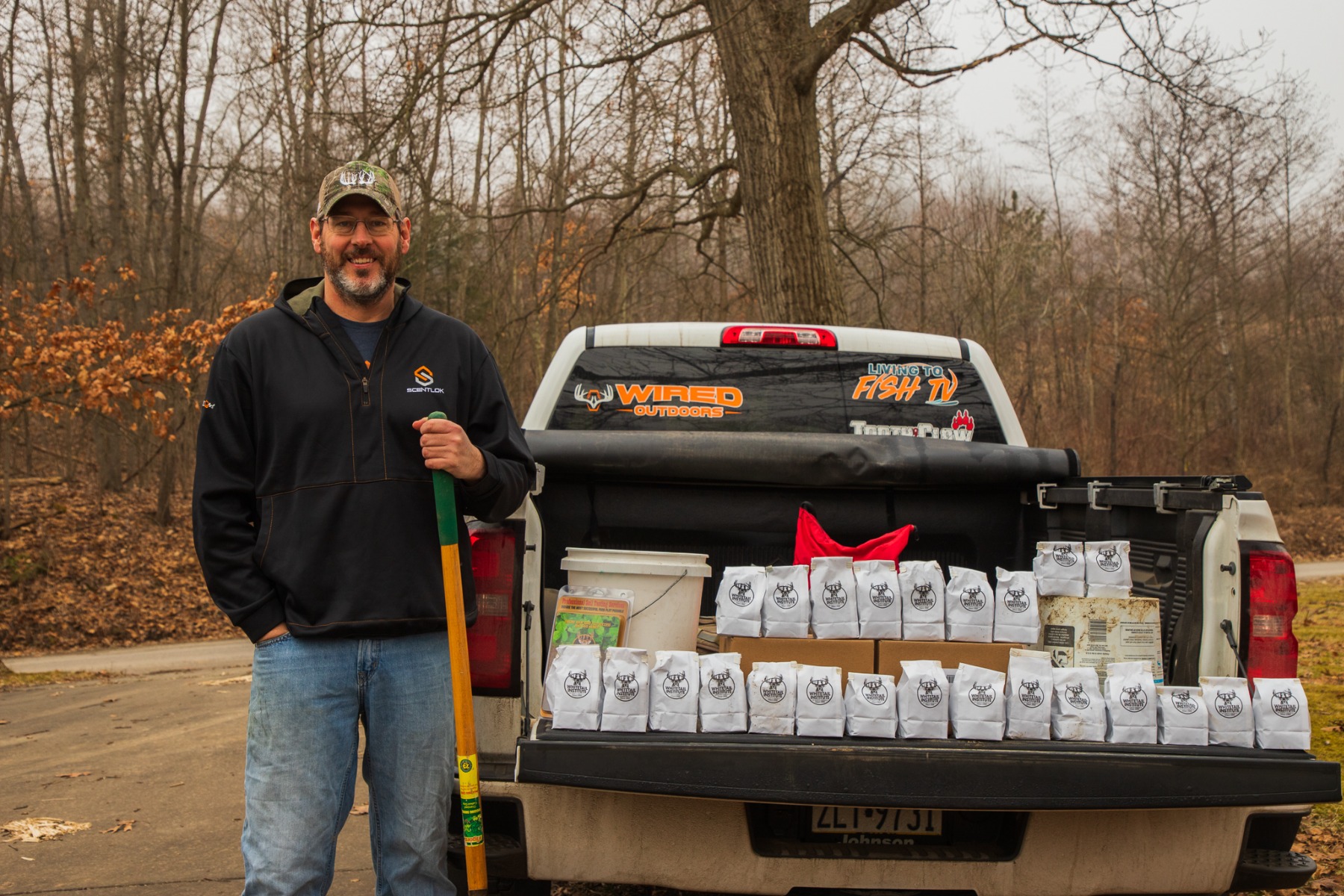Food plot management expert Jason Say discusses an often overlooked element in building better deer.
Last we talked with hunting land management expert, Jason Say, he spelled out an easy way to frost seed your plot. Besides frost seeding, another topic that Say is extremely versed in – that often goes overlooked by hunters – is soil testing.
“I’ve been planting food plots for going on 20 years and I see hunters talking on social media talk about how you don’t need to test the soil—but that’s really not the case,” notes Say.
“Personally, I’ve been planting the same 30 acres of food plots every year for the past 15 years and I soil sample annually,” adds Say. “The big thing is, it’ll save you money; secondly, you’ll end up with much better growth of whatever you plant.”
Say explains: “Let’s say you just go out and spread 200 pounds of 1919 on an acre. But that’s not all you need to do. With a soil sample you’ll find out if your soil is deficient in any way. Let’s say you had clover on your plot. Without a soil sample you might have wasted money buying 200 pounds of 2020 thinking you needed the nitrogen in that bag. You literally paid way more money than what you needed to for that fertilizer.”
“For me, getting soil sample assures that I’m giving plants the optimal opportunity I can. It's telling me exactly what I need for lime, nitrogen, etc. and what fertilizer to buy and use.”
Although there’s a handful of hunters who will throw down whatever and don’t really care what grows, Say believes most hunters want to optimize their soil for better growth—and save money in the process.
“If you're going through the effort of liming, fertilizing, disc-ing soil, and buying seed, you’re going to spend hundreds of dollars on your food plot. To skip the marginal cost for a soil sample just doesn’t make sense,” emphasizes Say.

There are two routes hunters can go to test their soil—either submitting to a local university or using a mail-in kit via the Whitetail Institute.
“A lot of universities offer soil testing, like Penn State. I also like using Whitetail Institute soil sample kits because they’re even simpler. I can mark down the exact blend that I want to plant, and the Whitetail Institute will give me exact recommendations for that blend of lime and fertilizer. It makes it idiot-proof.”
Say continues: “If you are a newbie at food plots, I'd encourage you to use a Whitetail Institute soil sample kit, which is very specialized and will teach you quite a bit throughout the process. If you submit a sample to a university, you’ll get a lot of very general information back that you’ll need to decipher and then choose your seed.”
Most soil tests will check all the organic matter available in your food plot soil, from pH to phosphorous to calcium and nitrogen, revealing where the soil is deficient.

Say concludes: “There’s a big difference between growing clover compared to turnips and radishes. The soil needs different things. Soil samples will help you get everything just right to prepare the soil for the best possible yield of whatever you want to plant—and that will ultimately create better habitat for what we all want, trophy buck growth.”













